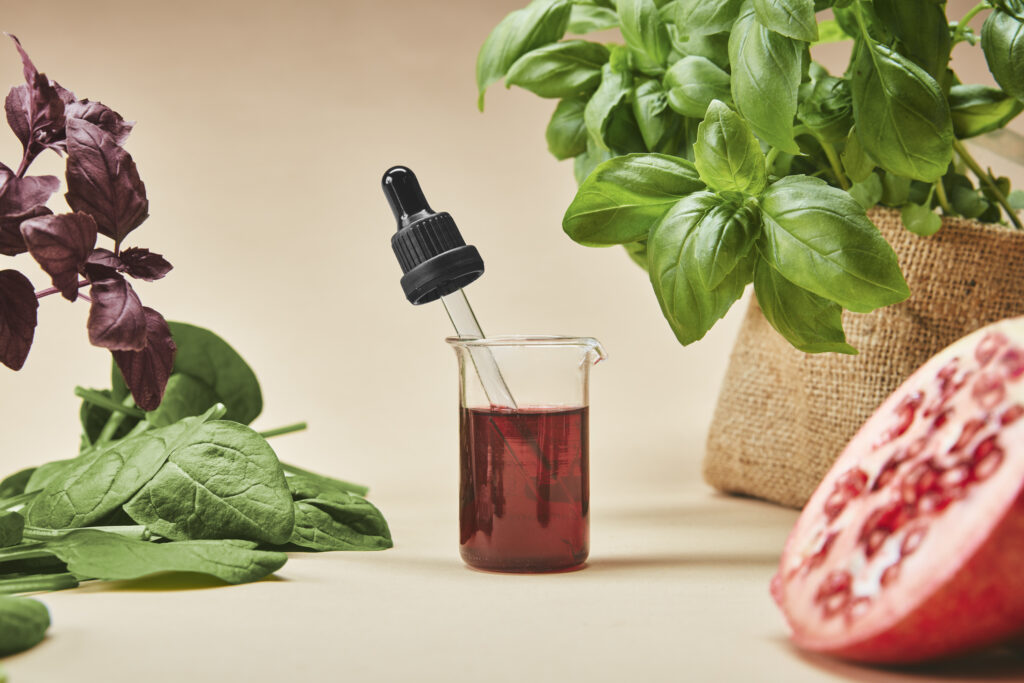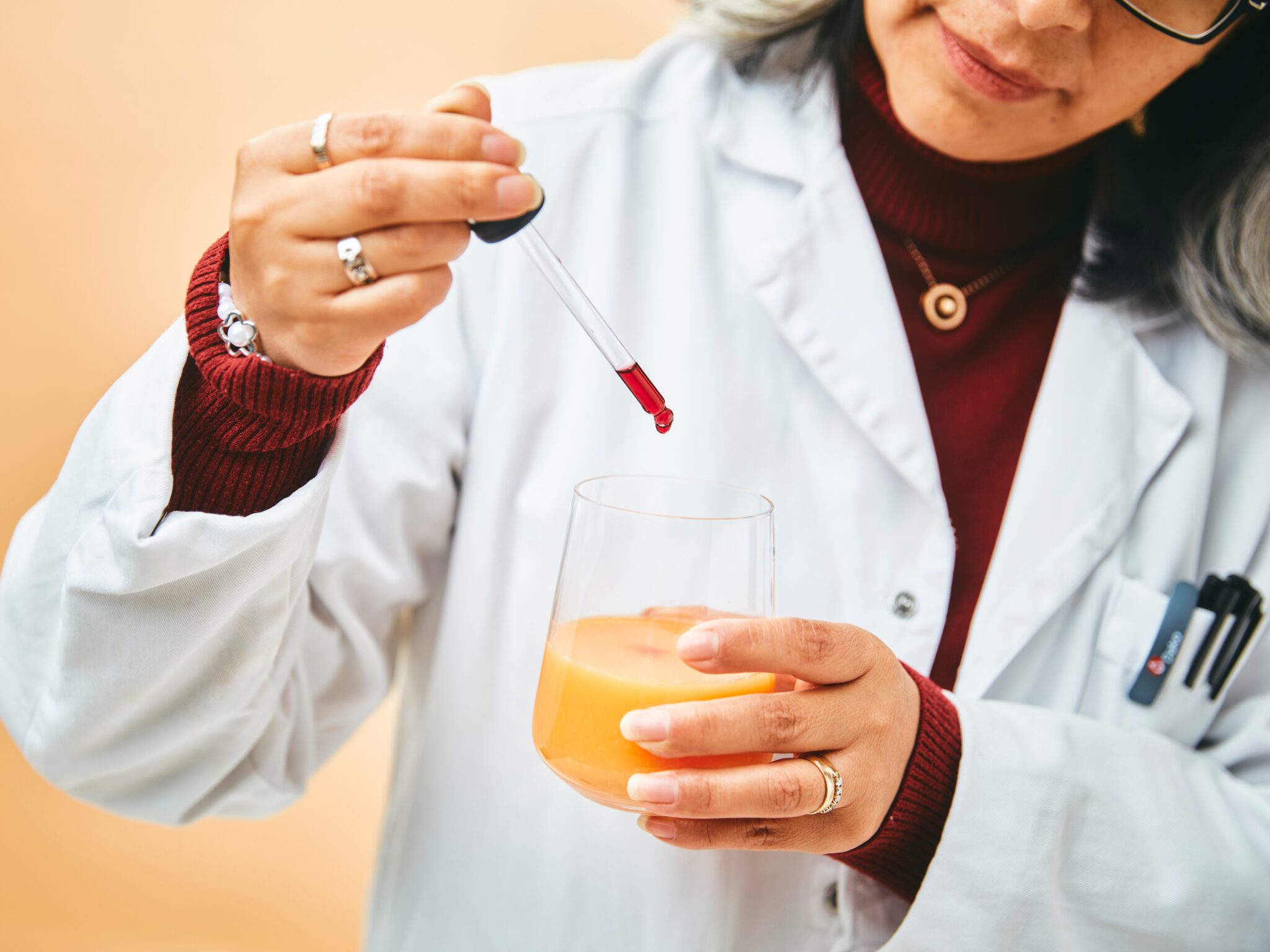Ironic Biotech Bags €1M to Develop Iron-Rich Plant Proteins via Precision Fermentation
5 Mins Read
Swedish food tech startup Ironic Biotech has raised €1M in pre-seed funding to accelerate the development of its plant-derived heme iron ingredient, which is produced via precision fermentation.
The funding round was led by Helsinki-based Nordic Foodtech VC, which recognised the potential of Ironic Biotech’s ingredient. The startup has discovered plant proteins that contain high amounts of bioavailable iron without any side effects, which can be used as part food of food formulations and iron supplements.
Produced via precision fermentation, the compounds have iron absorption rates comparable to those of meat, but carry a much lower climate footprint while addressing high global iron deficiency and anaemia rates.
“Our team wants to empower women and put an end to the tiredness and fatigue caused by iron deficiency. I refuse to believe that being a woman should mean constantly feeling drained. I am determined to provide a solution that truly works,” said Ironic Biotech founder and CEO Nélida Leiva Eriksson.
“New ingredients like this enable the food industry to tackle a global health problem with new products. Worries about iron uptake are also a significant barrier to reducing the use of red meat in the Western diet,” Nordic Foodtech VC investment director Louise Heiberg. “Putting a fundamental innovation like this to work takes effort, talent, and a bit of time. As an early investor, we work tightly with the team to build a solid foundation for success.”
Addressing a global health epidemic

Ironic Biotech was founded by Leiva Eriksson, an associate professor at Sweden’s Lund University, in 2020. The company is rooted in her own experience with anaemia, which is a direct result of iron deficiency. When the amount of iron in the body is too low, it can’t produce enough red blood cells to generate oxygen supply.
Iron is used to make haemoglobin, a protein that helps these cells carry oxygen throughout the body, and myoglobin, which stores and provides oxygen when needed. These are both part of the heme protein family, which are essential for oxygen regulation and human growth and development. They also have functional benefits, providing the colour, flavour and iron content associated with foods like red meat.
This is why producers have been working to create animal-free versions of heme proteins. Perhaps the most well-known company in this space is Impossible Foods, whose precision-fermented heme ingredient is the USP of its beef analogues. Belgian startup Paleo uses the same tech to produce yeast-derived myoglobin for human and pet food (it facilitates oxygen storage and diffusion in dogs and is an essential source of taurine for cats).
Ironic Biotech is working to address the health issue with its compounds. According to a scientific review last year, nearly two billion people worldwide suffered from anaemia in 2021 (about a quarter of the population), with cases increasing rapidly for women, expectant mothers, young girls, and children under five. Globally, 31% of women suffered from the condition, versus 17.5% of men, a difference that becomes more pronounced during the reproductive ages – and the leading cause behind this was iron deficiency.
Menstruation causes a periodic loss of blood, which means iron stocks need to be replenished regularly. Gynaecological disorders and maternal haemorrhage are also key contributors to anaemia incidence among women of reproductive age. This is why many women are advised to take iron supplements, while in severe cases, iron infusion therapy is recommended. Leiva Eriksson had to undergo the latter, but the high cost of these procedures – somewhere between €2,000 and €4,000 – makes them very inaccessible.
Going through the therapy was the turning point for the founder. “The lack of iron is partly responsible for the performance gap between males and females, as women naturally lose iron regularly. The situation is widely unaddressed – a sad story that applies to many female health issues, iron deficiency not being an exception,” said Leiva Eriksson. “I know what lack of iron can do to a person, as I was one of the millions of women suffering from it.”
Is Ironic Biotech the iPhone of supplements?

While humans get iron from food and supplements, each comes with its own problems. Red meat is the most typical source of iron, but it’s also the most polluting food on the planet, and is linked with a multitude of health risks. The EAT-Lancet Commission’s Planetary Health diet recommends cutting red meat consumption significantly from current levels, and with women more likely to adopt these eating patterns than men, the issue of iron deficiency will only continue to grow among women. Using precision fermentation means less water, less energy and less space to produce the same amount of iron as cattle.
As for supplements, they’re linked to various side effects, such as nausea, dizziness, stomach ache, constipation and other digestive problems, as well as organ damage. This is because over 90% of the iron in supplements goes through our digestive tracts without being absorbed.
Studies show that the absorption rates of iron can vary from 7-9% in leafy vegetables, 4% in grains and 2% in dried legumes, all the way to 25-30% for organ meats. But Ironic Biotech’s precision-fermented plant proteins have similar absorption rates to meat, and the iron-rich nature gives them a red tint. However, Leiva Eriksson said they won’t alter the colour of food as the concentration will be diluted.
The patented compounds are tasteless, can be powdered, frozen or granulated, and are shelf-stable. They will appeal to food companies looking to make products for consumers following plant-forward diets, and can be used as an ingredient to fortify food products like orange juice or plant-based milk.
Ironic Biotech will use the funding for R&D, expand its patent portfolio, and optimise its production process. It’s now aiming to partner with food and supplement manufacturers to use its plant compounds in their product formulations, with a targeted market launch of 2025.
Speaking to Forbes, Leiva Eriksson recalled how a team member likens the company’s discovery to the telephone revolution. All mobile phones were innovating through more buttons or functions, but nobody solved the problem until Apple unveiled the iPhone. “When I look at the iron supplements space, you got the metal, and people thought of innovation as adding biofilms or molecules around it. But in the end, it is the same elemental iron, and the solution was just trying to cover it,” she explained. “Nobody was taking the problem from the root and saying: ‘This doesn’t work.'”
She believes Ironic Biotech could be the iPhone of the supplements space. Will it help us think different(ly) about our iron needs?



